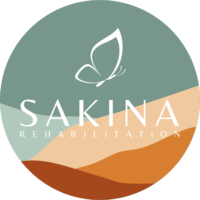Relapse is a common concern for individuals in recovery from addiction. Despite the best efforts and intentions, the road to long-term sobriety can be challenging, and setbacks can occur. However, relapse does not signify failure; rather, it’s a part of the recovery journey that can provide valuable lessons and insights. At Sakina Alcohol and Mental Health Rehab, we believe that understanding relapse and implementing effective relapse prevention strategies are key to sustaining long-term sobriety. In this comprehensive blog, we’ll explore what relapse is, why it happens, and how you can prevent it as you navigate your path to recovery.
Understanding Relapse: What Is It and Why Does It Happen?
Relapse refers to the return to substance use after a period of abstinence. It is often a gradual process that begins long before the actual act of using a substance again. Relapse can occur in three stages: emotional, mental, and physical. Understanding these stages is crucial to recognizing the warning signs and taking proactive steps to prevent relapse.
- Emotional RelapseDuring the emotional stage of relapse, individuals may not be consciously thinking about using substances, but their emotions and behaviors may be setting the stage for a future relapse. Common signs of emotional relapse include:
- Anxiety and Depression: Persistent feelings of anxiety, depression, or stress can create a sense of emotional overwhelm, making it difficult to cope with daily challenges.
- Isolation: Withdrawing from social support networks and avoiding interactions with friends, family, or support groups can lead to feelings of loneliness and disconnection.
- Poor Self-Care: Neglecting self-care practices, such as regular exercise, healthy eating, and sufficient sleep, can lead to physical and emotional exhaustion.
- Mental RelapseThe mental stage of relapse involves an internal struggle between the desire to remain sober and the temptation to use substances again. Individuals may start to romanticize past substance use or justify reasons for returning to it. Common signs of mental relapse include:
- Cravings: Intense cravings for the substance may emerge, leading to obsessive thoughts about using again.
- Glamorizing Past Use: Remembering past substance use as enjoyable or stress-relieving while minimizing the negative consequences.
- Planning a Relapse: Actively thinking about how, when, or where to use substances again, even if there’s an internal resistance to follow through.
- Physical RelapsePhysical relapse occurs when an individual actually returns to substance use. It is the final stage of the relapse process and can have significant consequences for an individual’s recovery. Once physical relapse occurs, it is important to seek support immediately to prevent further escalation.
The Importance of Relapse Prevention
Relapse prevention is a crucial aspect of long-term sobriety. It involves recognizing the early warning signs of relapse, developing coping strategies, and creating a support network to maintain sobriety during challenging times. At Sakina, we emphasize relapse prevention strategies as a central component of our treatment programs, empowering our clients with the tools and strategies they need to sustain their recovery.
Key Strategies for Relapse Prevention
Preventing relapse requires a proactive and comprehensive approach. Below, we outline several key strategies that can help individuals stay on track and maintain long-term sobriety.
- Developing a Relapse Prevention PlanA relapse prevention plan is a personalized strategy that outlines the steps an individual will take to maintain sobriety and avoid relapse. This plan should include:
- Identification of Triggers: Recognize the people, places, situations, or emotions that can trigger cravings or thoughts of substance use.
- Coping Strategies: Develop a list of healthy coping mechanisms to manage triggers and stress. This can include deep breathing exercises, mindfulness practices, engaging in hobbies, or reaching out to a support person.
- Emergency Contacts: Identify trusted individuals who can provide immediate support if you feel at risk of relapse. This could be a sponsor, therapist, or close friend.
- Daily Routine: Establish a structured daily routine that includes time for self-care, work, social activities, and relaxation. A consistent routine can provide stability and reduce the risk of relapse.
- Building a Strong Support NetworkHaving a strong support network is essential for relapse prevention strategies. Surrounding yourself with supportive and understanding individuals can provide encouragement and accountability during difficult times. Here’s how to build and maintain a support network:
- Attend Support Groups: Participate in support groups such as Alcoholics Anonymous (AA), Narcotics Anonymous (NA), or other recovery-focused meetings. These groups offer a sense of community and shared experience, which can be incredibly valuable in maintaining sobriety.
- Maintain Open Communication: Keep open lines of communication with your support network. Let them know how you’re feeling and don’t hesitate to ask for help when needed.
- Reconnect with Loved Ones: Rebuild relationships with family and friends who support your recovery. Strong, positive relationships can provide emotional support and help you stay focused on your goals.
- Practicing Mindfulness and Stress ManagementMindfulness practices and stress management techniques are powerful tools for relapse prevention strategies. They help individuals stay present, manage difficult emotions, and reduce the risk of being overwhelmed by cravings or stress. Here are some techniques that can be effective:
- Mindfulness Meditation: Regular mindfulness meditation can help individuals become more aware of their thoughts and emotions without reacting impulsively. It encourages a non-judgmental attitude towards cravings and other difficult feelings.
- Progressive Muscle Relaxation: This technique involves tensing and then relaxing each muscle group in the body, which can reduce physical tension and promote relaxation.
- Breathing Exercises: Deep breathing exercises can help calm the nervous system and reduce feelings of anxiety or panic, which are common triggers for relapse.
- Focusing on Physical Health and WellnessTaking care of your physical health is crucial for maintaining sobriety. A healthy body can better cope with stress and reduce the intensity of cravings. Here’s how to prioritize your physical health:
- Regular Exercise: Engaging in regular physical activity can reduce stress, improve mood, and increase energy levels. Whether it’s walking, running, yoga, or another form of exercise, staying active is an important part of relapse prevention.
- Balanced Nutrition: Eating a balanced diet with plenty of fruits, vegetables, lean proteins, and whole grains can support overall health and well-being. Avoiding excessive sugar and caffeine can also help stabilize mood and energy levels.
- Adequate Sleep: Prioritizing sleep is essential for both physical and mental health. Establish a regular sleep routine and create a restful environment to ensure you’re getting enough rest each night.
- Continued Therapy and Counseling: Ongoing therapy and counseling are essential components of relapse prevention strategies. Therapy provides a safe space to explore underlying issues, develop new coping strategies, and receive ongoing support. At Sakina, we offer a range of therapeutic modalities, including:
- Cognitive Behavioral Therapy (CBT): CBT is an evidence-based therapy that helps individuals identify and change negative thought patterns and behaviors that contribute to relapse.
- Motivational Interviewing (MI): MI is a client-centered approach that helps individuals strengthen their motivation and commitment to recovery.
- Family Therapy: Family therapy involves loved ones in the recovery process, helping to heal relationships and create a supportive home environment.
- Setting Realistic GoalsSetting realistic and achievable goals is an important part of staying motivated and focused on recovery. These goals can be related to various aspects of life, including personal development, career, relationships, and health. Here’s how to set effective goals:
- SMART Goals: Ensure that your goals are Specific, Measurable, Achievable, Relevant, and Time-bound. For example, instead of setting a vague goal like “improve my health,” set a specific goal like “exercise for 30 minutes three times a week.”
- Celebrate Milestones: Recognize and celebrate your achievements, no matter how small. Acknowledging your progress can boost your confidence and reinforce your commitment to sobriety.
- Adjust Goals as Needed: Recovery is a dynamic process, and your goals may need to change over time. Be flexible and willing to adjust your goals based on your current circumstances and needs.
Understanding and Managing High-Risk Situations
High-risk situations are scenarios that increase the likelihood of relapse. These situations can vary from person to person, but they often involve stress, social pressure, or exposure to triggers. It’s important to identify and develop strategies for managing these situations effectively. Common high-risk situations include:
- Social Gatherings: Attending events where alcohol or drugs are present can be particularly challenging. Have a plan in place, such as bringing a sober friend, having an exit strategy, or politely declining the invitation.
- Major Life Changes: Significant life events, such as moving, changing jobs, or experiencing a loss, can create stress and increase the risk of relapse. During these times, lean on your support network and engage in additional therapy if needed.
- Negative Emotions: Feelings of anger, sadness, or frustration can be powerful triggers for relapse. Practice emotional regulation techniques and seek support if you find yourself struggling with negative emotions.
The Role of Aftercare in Relapse Prevention
Aftercare is a critical component of the recovery process and plays a significant role in preventing relapse. Aftercare involves ongoing support and resources to help individuals transition from formal treatment to independent living. At Sakina, we offer comprehensive aftercare programs that include:
- Continued Counseling: Access to individual or group counseling sessions to address ongoing challenges and reinforce relapse prevention strategies.
- Support Groups: Participation in support groups that provide a sense of community and accountability.
- Life Skills Training: Workshops and training sessions that focus on life skills, such as budgeting, job searching, and time management, to help individuals build a stable and fulfilling life in recovery.
What to Do If a Relapse Occurs
Despite your best efforts, relapse can still occur. It’s important to remember that relapse does not mean failure—it’s a signal that your recovery plan may need adjustment. If a relapse occurs:
- Seek Immediate Support: Reach out to your support network, sponsor, or therapist as soon as possible. Early intervention can prevent a full return to substance use.
- Reflect on the Experience: Consider what led to the relapse and what you can learn from the experience. Use this information to strengthen your relapse prevention plan.
- Recommit to Recovery: Reaffirm your commitment to sobriety and take the necessary steps to get back on track, whether that involves returning to treatment or increasing your support.
Conclusion: Relapse Prevention is an Ongoing Process
Relapse prevention is an ongoing process that requires vigilance, commitment, and support. At Sakina Alcohol and Mental Health Rehab, we are dedicated to providing the tools, resources, and care needed to help our clients achieve and maintain long-term sobriety. By understanding the stages of relapse, developing a personalized prevention plan, and building a strong support network, individuals can navigate the challenges of recovery and create a fulfilling life free from addiction.
If you or a loved one is struggling with addiction or concerns about relapse, consider reaching out to Sakina. Our experienced team is here to support you every step of the way, providing compassionate care and evidence-based treatment to help you succeed in your recovery journey.


